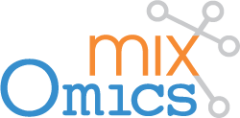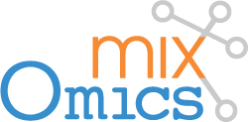This latest seminar was hosted by Australian BioCommons / EMBL-ABR / ARDC in March 2024.
The latest version includes some recent updates (also covered in the other webinars in more details – check them out!)
The slides are opened to the community, but don’t forget to acknowledge the presenter if you are re-using the slides.
Multi-omics data (eg. transcriptomics, proteomics) collected from the same set of biospecimens or individuals is a powerful way to understand the underlying molecular mechanisms of a biological system.
mixOmics, a popular R package, integrates omics data from a wide range of sources into a single, unified view making it easier to explore and reveal interactions between omics layers. It overcomes many of the challenges of multi-omic data integration arising from data that are complex and large, with few samples (<50) and many molecules (>10,000), and generated using different technologies.
Prof Kim-Anh Lê Cao, head of the mixOmics team, is delivering this webinar to outline the different methods implemented in mixOmics and how statistical data integration is defined in this context. She will demonstrate how these approaches are applied to analysis of different multi-omics studies and outline the latest methodological developments in this area. From a study of human newborns, to multi-omics microbiomes, and multi-omics in single cells, these examples illustrate how mixOmics is used to perform variable selection and identify a signature of omics markers that characterise a specific phenotype or disease status.
Who the webinar is for:This webinar is for life scientists, bioinformaticians and anyone with an interest in exploration and integration of multiomics biological datasets.
Topics covered: omics data statistical integration, introduction to matrix factorisation techniques, applications of DIABLO and MINT frameworks for bulk or single cell assays, extensions.
The slides are opened to the community, but don’t forget to acknowledge the presenter if you are re-using the slides.
Any mixOmics related question can be send to https://mixomics-users.discourse.group (you will need to login but there is not mail traffic associated)

